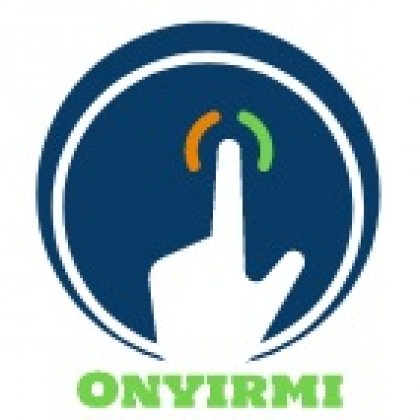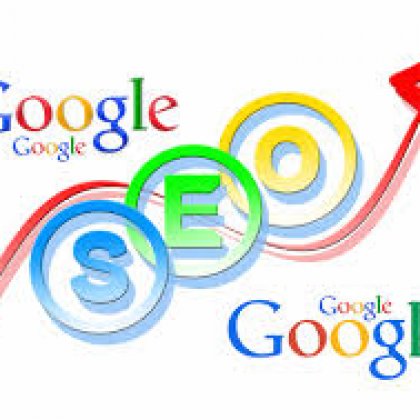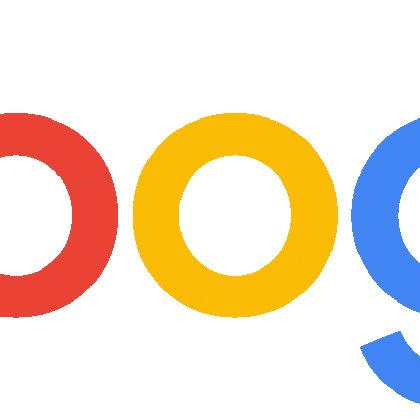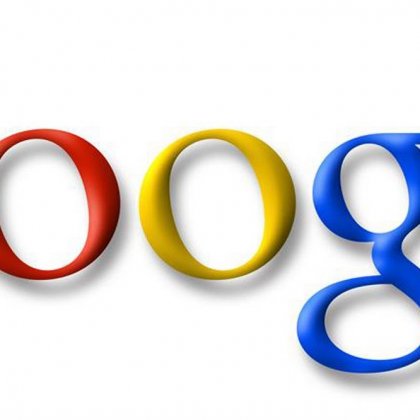Picture and video search. Google is likewise moving more assets towards picture and video search.

How Google will move assets to media search and different goodies from Gary Illyes' AMA on Reddit
The Google website admin patterns examiner additionally addressed points like the chance of an Ordering Programming interface, whether interior over-connecting punishments exist and how the bunching of copy pages functions.
Barry Schwartz on February 11, 2019 at 12:06 pm | Understanding time: 10 minutes
Google website admin patterns expert Gary Illyes, who has been with Google for north of eight years working solely on search-related subjects, partook in an AMA (ask me anything) on Reddit over the course of the end of the week. Throughout the span of the extended conversation string, he covered everything from robots.txt to RankBrain to social signs to picture and video search. We'll save you the difficulty of filtering through everything by sharing all the significant stuff here.
Gary Illyes has done numerous AMAs with us at our SMX occasions before yet we accept this is Gary's most memorable Reddit AMA.
Google regards the robots.txt. Regardless of anything else, Googlebot will regard the orders you give it inside your robots.txt. Assuming you give Google clashing mandates or you give invalid data in your robots.txt, then, at that point, Googlebot can do whatever its might want to do. However, in any case, assuming you utilize the robots.txt accurately, Google will comply.
Gary expressed: "Robots.txt is regarded for what it's intended to do. Enough said. There's no such thing as 'in some cases can be disregarded'."
ccTLDs, gTLDs, Search Control center setting influence on rankings. Gary said that these settings in a roundabout way affect rankings. With regards to neighborhood plan inquiries, assuming Google thinks nearby happy is more important for the client, Google might rank substance inside that country higher than other substance. These nation flags, the ccTLD as well as nation setting in Search Control center, give Google data that assists it with deciding this space is more pertinent to individuals inside a particular country.
"The manner in which it influences its positions is aberrant I think. You have loads of gTLDs that are focused on to U.S. in the outcome set where your .lk space attempts to appear — those results are pertinent and, what's more, they get a slight lift for being "neighborhood" (for example designated through search console)," Gary composed. "Since you can't get that help [solely] with your space for something besides Sri Lanka, you are beginning from a 'punishment position' (in the feeling of sports)."
RankBrain clarification. RankBrain is Google's man-made intelligence based question translation framework that assists Google with understanding the inquiry better and accordingly rank more applicable pages for that question. We shrouded it exhaustively in our FAQs before yet this is the way Gary Illyes made sense of it in the AMA:
"RankBrain is a PR-hot AI positioning part that utilizes verifiable pursuit information to foresee what might a client doubtlessly click on for a formerly concealed question," he said. "A truly cool piece of designing saved our butts on many times at whatever point customary algos were like, for example 'goodness look a "not" in the question string! we should overlook the damnation out of it!', yet it's by and large depending on (now and again) months-old information about what occurred on the outcomes page itself, not on the point of arrival."
So it seems like RankBrain is both valuable to research and might likewise not work at any point so well for Google in view of the more seasoned information.
UX and conduct signals. One of the more dubious points around Google positioning variables is whether and how much the web crawler involves UX and conduct signals for positioning. Google has everlastingly denied involving them for direct positioning signs. In the AMA. Yet again gary said that Google doesn't utilize them, getting in that frame of mind at one character in the business who has guaranteed the inverse many times throughout the long term.
"Stay time, CTR, anything that Fishkin's new hypothesis is, those are for the most part made up poo. Search is substantially more straightforward than individuals naturally suspect," Gary said.
Raters and live tests. Gary then dove into how Google utilizes click information and other client information — not really for direct positioning signs but rather for assessing the list items. He discussed the hunt quality raters and how they grade the Google query items and he discussed live trials — when Google tests what various situations mean for searcher conduct. Be that as it may, the center rankings don't get straightforwardly affected by this searcher conduct.
"At the point when we need to send off another calculation or an update to the 'center' one, we really want to test it," he said. "Same goes for UX highlights, such as changing the shade of the green connections. For the previous, we have two methods for testing: (1) With raters, which is definite agonizingly in the raters rules, (2) With live examinations."
"1 was at that point bit to [the] bone and it's not pertinent here at any rate," Gary added. "2 is the point at which we take a subset of clients and power the investigation, positioning or potentially UX, on them. Suppose 1% of clients get the update or send off up-and-comer, the rest gets the right now conveyed one (base). We run the analysis for quite a while, in some cases weeks, and afterward we look at certain measurements between the trial and the base. One of the measurements is the manner by which taps on results vary between the two."
Composing content utilizing AI. Ordinarily Google dislikes having machines and PCs compose content. As a matter of fact, their rules have advised website admins to impede web crawlers from ordering auto-created content. However, with AI and man-made consciousness, perhaps that innovation can cause your substance to appear overall more appealing than human-composed content. Assuming this is the case, could find out about be alright with that?
Gary suggested that the response was indeed, saying, "In the event that you can produce content that is unclear from that of a human's, pull out all the stops. I'm really wanting to review something on the most proficient method to involve ML and NLP for Search engine optimization (when I have some time)."
Picture and video search. Google is likewise moving more assets towards picture and video search. Gary said he thinks there is a ton of chance for SEOs and advertisers in this vertical. He will not pre-declare everything except he said: "We basically realize that media search is excessively overlooked for how it's proficient doing distributers, so we're tossing more designers at it as well as more effort."
He rehashed this in the AMA, saying, "I can't pre-declare things here, yet indeed, media search, by and large, is something we're tossing additional designing assets at these days. Google Pictures and Video search is frequently ignored, however they have enormous potential."
Hreflang as a positioning advantage. Google has said endlessly time again that utilizing hreflang markup for your sites doesn't bring about an immediate positioning advantage. It simply imparts to research more insights concerning the beginning and language of the page.
Gary gave a genuine illustration of why this is the situation, saying, "This is a fascinating inquiry and I think the disarray is more about the inward versus outside view of what's a 'positioning advantage'. You won't get a positioning advantage in essence, basically not in the inward feeling of the term. What you will get is more designated traffic. Allow me to give you a model:
Inquiry: "AmPath" (so we don't utilize a genuine organization name ::eyeroll:: )
Client nation and area: ES
Your site has page A for that term in EN and page B in ES, with hreflang connect between them."
"For this situation," he went on, "essentially when I (re)implemented hreflang, what might happen is that when we see the question, we'd recover An in light of the fact that, suppose, it has more grounded signals, yet we see that it has a kin page B in ES that would be better for that client, so we do a second pass recovery and present the client page B rather than A, at the area (rank?) of A."
Copy content bunches. A member posed Gary a fascinating inquiry around page signal combination when Google groups a lot of pages in view of duplication or in light of the fact that they are partnered. The Search engine optimization inquired as to whether Google will pass the signs from different pages in the group to the page Google positions. Gary said he can't offer a lot of detail around the response since spammers might attempt to mishandle it yet he said, "by and large the page in a dup group that appears in the outcomes will see more advantages."
Here is the full Q & A, in light of the fact that you really want to see the specific setting here:
Question: "Assuming that I organization content and the other site has a standard back or it gets treated as a similar page as the first since it is copy, do the signs like inner/outer connections to the substance on the other site count for me which is by all accounts how it could be dealt with or is this an exceptional case Google searches for and says hello that is somewhat off-putting and reasonable paid, so don't count those?"
Gary's response: "I can't offer a substantial response here since spammers would have a field day with it, yet by and large the page in a dup bunch that appears in the outcomes will see more advantages."
Envelope level signs. Does research have any kind of envelope level signs around satisfied? Gary Illyes made sense of elements like this are probable more helpful with regards to slithering the substance on the site.
"They're more similar to slithering examples much of the time, however they can turn into their own site 'piece'," he said. "Like, on the off chance that you have a facilitating stage that has URL structures example.com/username/blog, then we'd ultimately lump this website into loads of small scale destinations that live under example.com."
Final turning point. Gary was inquired as to whether a space name can be harmed to such an extent that it isn't repairable as far as it having the option to rank well once more. Gary said no, there is nothing of the sort. However, Google has said in the past that a few spaces are harmed severely to the point that it could be simpler to begin with another area name.
Inside interface punishment. Gary likewise expressed that there is no such thing as a punishment for inner connection over-improvement. He said, "you can manhandle your interior connections however much you need AFAIK."
Center around the nuts and bolts. Gary genuinely focused on that SEOs and website admins ought to stop obsessin
 English
English
 Türkçe
Türkçe  Deutsch
Deutsch 














